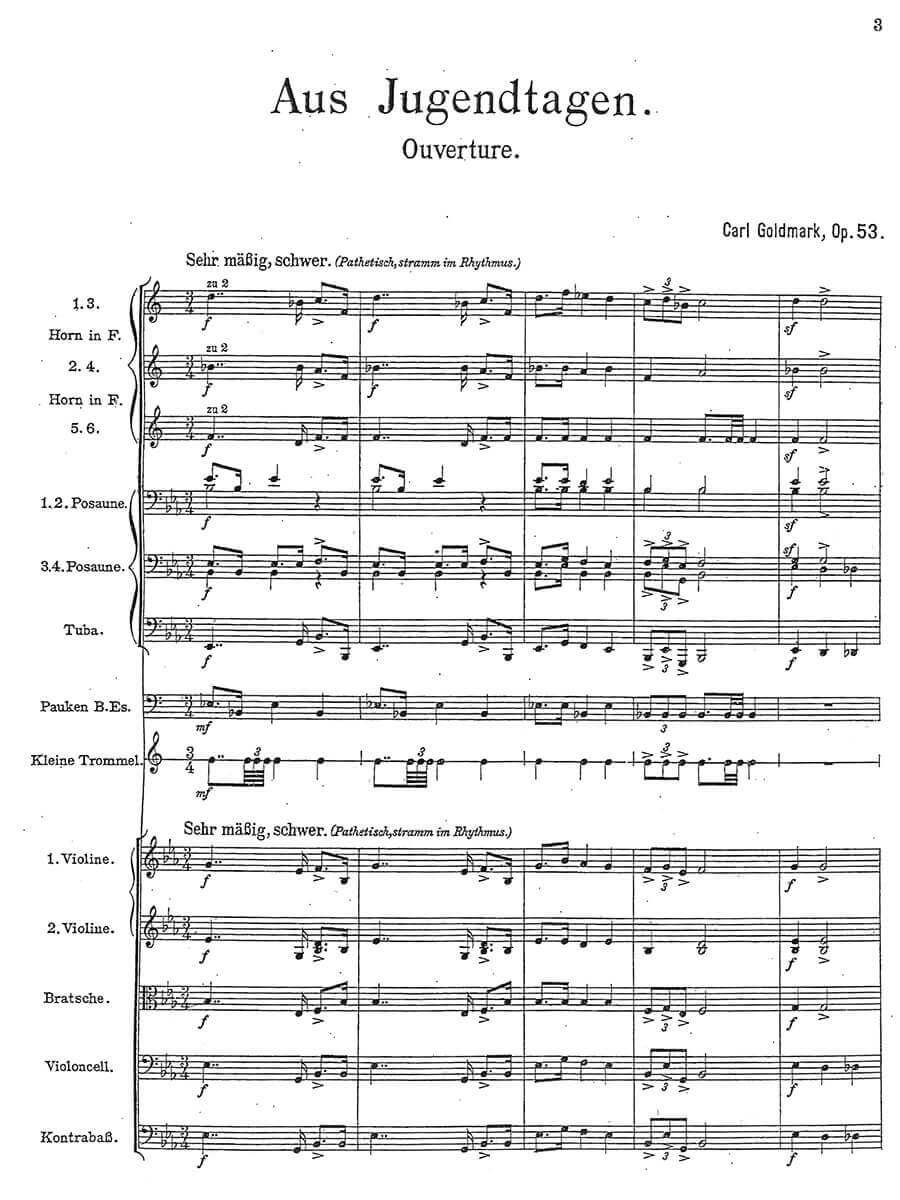Aus Jugendtagen Op. 53, Concert overture
Goldmark, Carl
21,00 €
Preface
Károly (Karl) Goldmark
(b. Keszthely, 18 May 1830 — d. Vienna, 2 January 191 )
Aus Jugendtagen
Op. 3
Preface
Aus Jugendtagen [From youthful days] is one of Karl Goldmark‘s last works. It was composed in 1909 and premiered by the Vienna Philharmonic Orchestra in 1912, a premiere in Budapest following on 12th February 1913. As the title suggests it is intended to represent Goldmark’s experiences as a young man.
During his lifetime Goldmark was chiefly respected for his operas, in particular The Queen of Sheba (1873). The Sakuntala Overture Op. 13 (186 ) and the Rustic Wedding Symphony Op. 26 (1876), both programmatic orchestral works, and the Violin Concerto Op. 28 (1877) also remained popular well into the twentieth century. He drew heavily on the compositional technique of Wagner, but his orchestral works show the influence of Liszt and similarities with the later music of Brahms.
Goldmark composed eight concert overtures. The earliest, from around 1854, was untitled and never published. Aus Jugendtagen was to be his last. Concert overtures were popular from the time of Mendelssohn onwards and Goldmark’s first explorations of the genre reflect the earlier composer’s influence. His overtures kept abreast of the trends, however. Sakuntala, based on a Sanskrit tale, was written when the oriental was in vogue in the arts. Der gefesselte Prometeus (1889) was composed when classical subjects were popular. His last two overtures, In Italien (1904) and Aus Jugendtagen, were autobiographical reflecting the interest in the self and interpretation of personal experience so widely explored during the early twentieth century.
Goldmark followed the Germanic development of overture form. Earlier works, including Sakuntala, blend storytelling with sonata form, following the elements of the drama using leitmotiv technique. Although they have evocative titles, his later overtures follow Absolutist ideals rather than Wagner’s New German School of programme music. Giving preference to musical form over storyline, narratives are not followed scene by scene. Most explored the sonata form model and are expansive symphonic works along the lines of Brahms’ Tragic Overture (1880). Aus Jugendtagen inhabits the middle ground between absolute and programme music, having a clearly identifiable structure, but also a wealth of emotional content that can be related to the title. However, just as Sakuntala does not really conjure up exotic India, Aus Jugendtagen does not use the familiar musical symbols employed by many nineteenth century composers to depict the Hungary of Goldmark’s youth
Read full preface > HERE
Score Data
| Edition | Repertoire Explorer |
|---|---|
| Genre | Orchestra |
| Size | 210 x 297 mm |
| Printing | Reprint |
| Pages | 62 |
